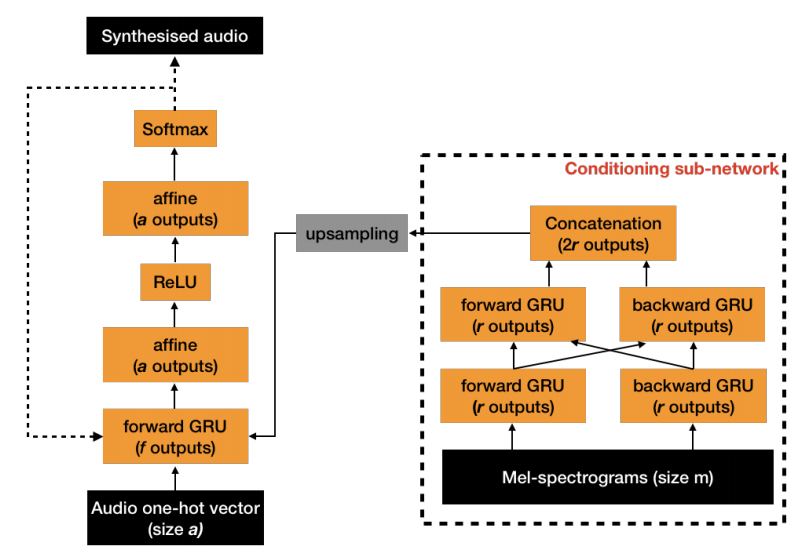A PyTorch implementation of Robust Universal Neural Vocoding. Audio samples can be found here.
-
Ensure you have Python 3 and PyTorch 1.
-
Clone the repo:
git clone https://github.com/bshall/UniversalVocoding
cd ./UniversalVocoding
- Install requirements:
pip install -r requirements.txt
- Download and extract ZeroSpeech2019 TTS without the T English dataset:
wget https://download.zerospeech.com/2019/english.tgz
tar -xvzf english.tgz
- Extract Mel spectrograms and preprocess audio:
python preprocess.py
- Train the model:
python train.py
- Generate:
python generate.py --checkpoint=/path/to/checkpoint.pt --wav-path=/path/to/wav.wav
Pretrained weights for the 9-bit model are available here.
- Trained on 16kHz audio from 102 different speakers (ZeroSpeech 2019: TTS without T English dataset)
- The model generates 9-bit mu-law audio (planning on training a 10-bit model soon)
- Uses an embedding layer instead of one-hot encoding
